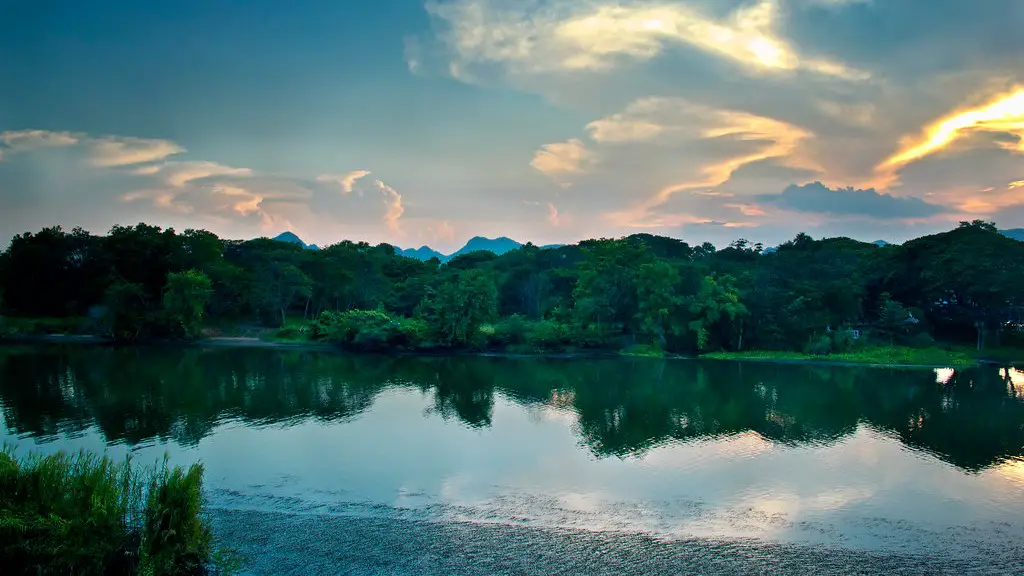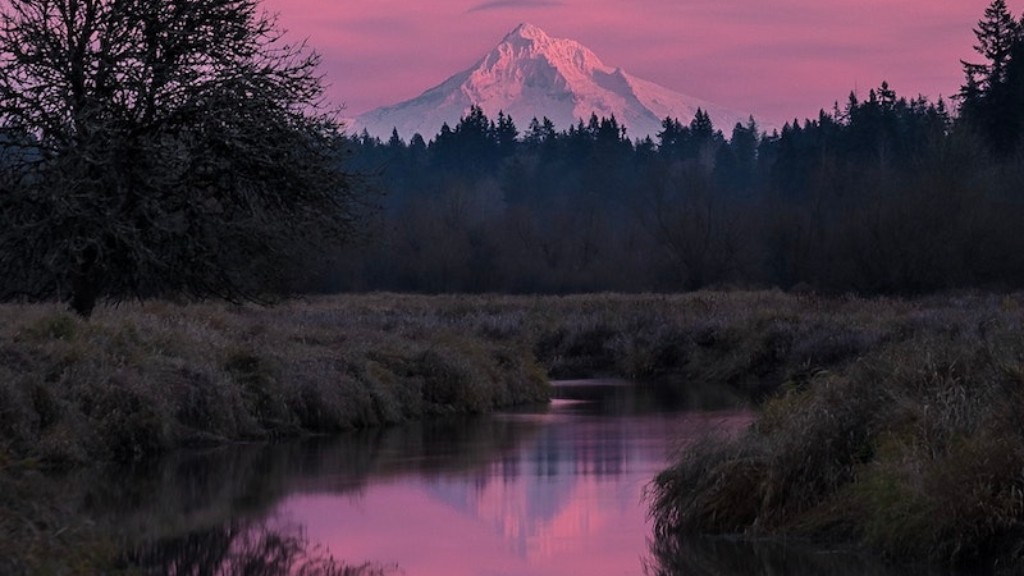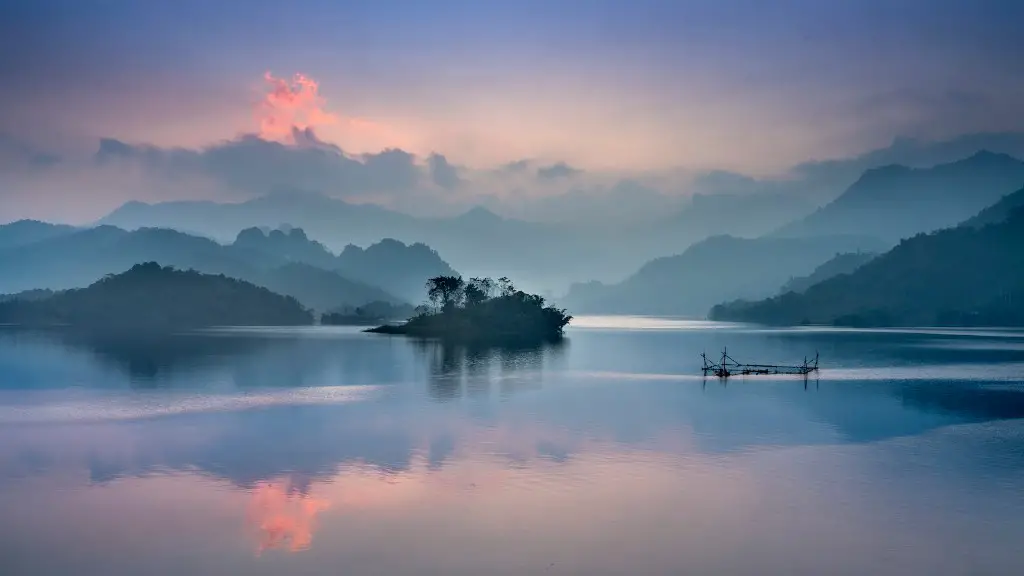Geographical Position
The Nile River is located in northern Africa, stretching from central Africa and into the Mediterranean Sea. It is the longest river in the world and an important water source for many African nations. The river begins at the equator and ends at the Mediterranean Sea. The source of the Nile can be found in the highlands of central Africa, in the countries of Rwanda, Burundi, and Tanzania. From there, it flows northward, passing through Uganda and South Sudan, before entering Sudan and Egypt. The Nile eventually empties into the Mediterranean Sea.
Data and Statistics
The Nile River is many miles long, beginning near Lake Victoria and reaching the Mediterranean Sea, crossing 6 countries in the process. It is approximately 4,258 miles (6,852 km) long, making it the longest river in the world. There are two branches to the Nile, the White Nile and the Blue Nile. The White Nile begins at Lake Victoria, while the Blue Nile originates near Lake Tana in Ethiopia.
Reliability and Usage
For many African countries, the Nile is an important water source, playing an essential role in many aspects of life. It provides clean drinking water, irrigation for agriculture, and electricity from hydropower plants. The river is also essential for transportation. The Nile provides a reliable connection for businesses, allowing for a more efficient movement of goods. It is no surprise that the countries flanking the Nile are some of the most heavily populated in the world.
Environmental Impact
Though the Nile is an important resource for many African countries, the river has been subject to numerous environmental issues. Pollution is a major problem, resulting from the disposal of industrial and human waste into the river. Additionally, misuse of water resources, such as over-abstraction of water or over-irrigation of fields, has caused serious ecological issues. Of particular concern is the management of the dam on the Aswan High Dam in Egypt, which controls the flow of the river.
Economic Impact
The Nile is an important economic resource in many African countries. The river offers numerous employment opportunities, such as farming and fishing, and the countries along the Nile’s course are some of the most productive, trade-reliant economies in Africa. Furthermore, large-scale projects, such as the Aswan High Dam, have generated billions of dollars for the region’s economy.
Historical Significance
The Nile has been an important factor throughout human history, and many ancient civilizations have sprung up along its banks. The river allowed for international trade, and agriculture was made possible by the annual flooding. The ancient Egyptians even worshipped the river, attributing it to their gods. Today, the region’s culture and history remains deeply connected to the Nile.
Sustainability
The importance of the Nile has remained unchanged, and efforts are being made to protect the river and ensure its availability for future generations. International agreements, such as the Nile Basin Initiative and the Cooperative Framework Agreement, have been set up to foster cooperation between the countries affected by the river. Furthermore, national governments are taking steps to ensure the sustainability of the resource, such as installing water-saving irrigations systems and pollution-control devices.
Agricultural Benefits
The Nile provides a number of agricultural benefits, enabling farmers to grow crops in areas not suitable for farming. The river has allowed nations such as Egypt to become food-secure and economically competitive. Furthermore, the river is essential for traditional fishing activities and aquaculture, which provide jobs to many people in the region.
Hydropower
The Nile is an important source for hydroelectric power, generating vast amounts of electricity for the countries along its course. The Aswan High Dam has a generating capacity of 11 gigawatts, and other dams along the river have a combined generating capacity of over 13 gigawatts. Hydroelectric power is essential for many African countries, providing a renewable and affordable energy source.
Tourism and Recreation
Finally, the Nile River is an important attraction for tourists, and its tranquil waters provide a perfect backdrop for recreation. The river banks offer a number of activities, such as fishing, boating, and sailing. Additionally, many people flock to the region’s ancient cities, such as Luxor and Giza, which were once the center of civilization around the Nile.


